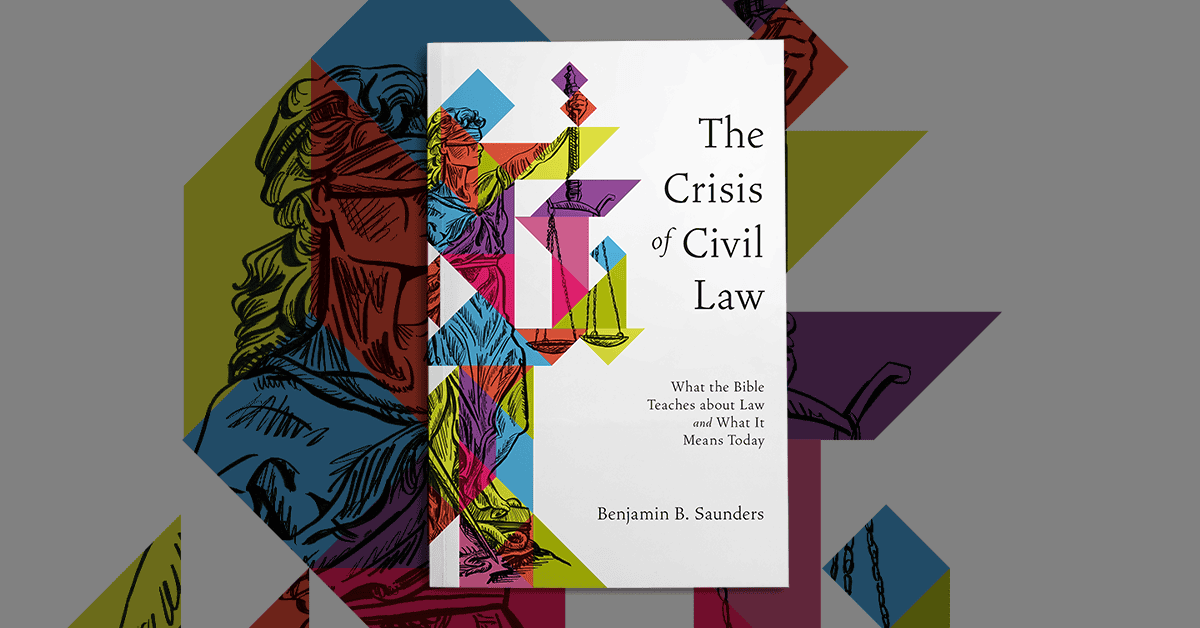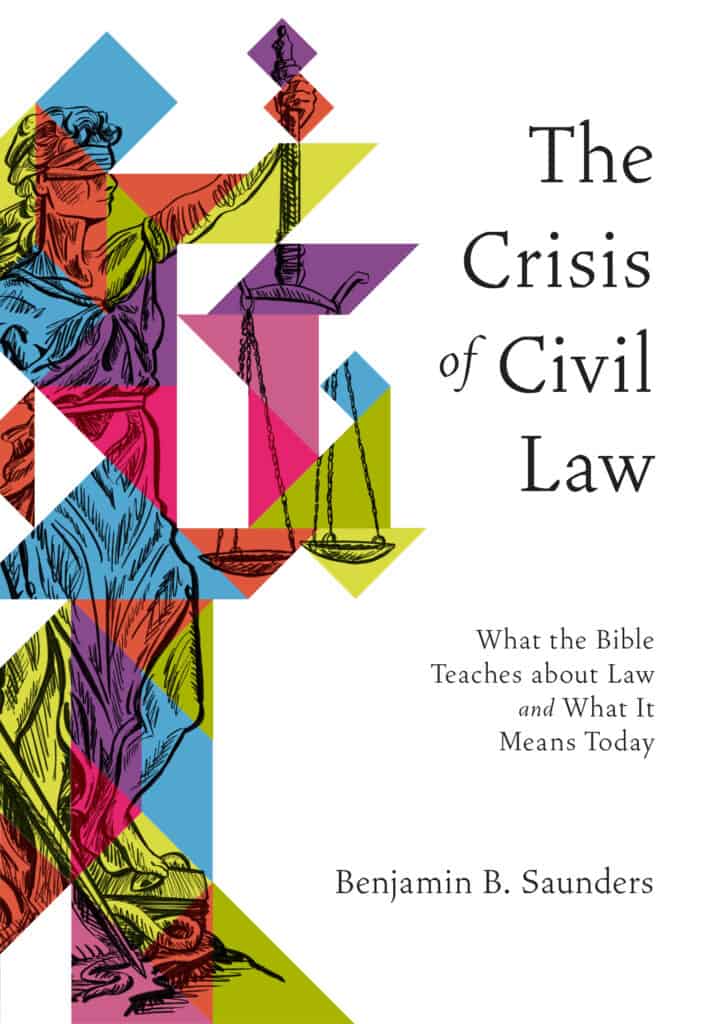
Benjamin B. Saunders is the author of The Crisis of Civil Law: What the Bible Teaches about Law and What It Means Today. In his new book, Saunders draws from Scripture and the Christian tradition to provide valuable guidance on contemporary legal questions and the role of civil government.
In our interview below, Saunders reflects on how the Covid-19 pandemic, and the radically different Christian responses to it, inspired him to write this book.
Benjamin B. Saunders is associate professor at Deakin Law School in Melbourne, Australia.
Lexham Press: What is the story behind your book and what is your book’s basic thesis?
Benjamin B. Saunders: It struck me during the Covid-19 pandemic that, not only do Christians disagree about matters of law and government, but there seems to be little agreement on the underlying principles, and how to approach such questions. I wanted in the book to offer a perspective that takes the Bible seriously as the rule of faith and practice, but also allows space for wisdom in implementing civil laws. The basic thesis of the book is that the natural law provides the foundational principles of morality and that human civil laws build on this foundation in changing circumstances.
LP: Can you tell us what contribution you hope to make with your book?
Saunders: There is a wealth of valuable literature in the Christian tradition about law. I hope to introduce people to some of the riches that the tradition has to offer, especially Protestant writers. I hope also that readers will be inspired to read, reflect and meditate on the beauty of God’s law.
LP: What was a particularly surprising or enjoyable aspect of writing your book?
Saunders: Most of my writing has been academic writing, in law journals. It was a privilege to be able to take an expressly biblical approach, and draw from a range of wonderful writers from the Christian tradition. I particularly enjoyed writing the chapter on civil obedience and disobedience, as I think that is a crucial issue for Christians and the church today.
LP: Share something surprising about yourself that only your friends would know?
Saunders: I play the piano but have no sense of timing. A bit of a drawback at times…
In this excerpt from The Crisis of Civil Law: What the Bible Teaches about Law and What It Means Today, Saunders introduces the crisis in law and the confusion among Christians about what law is.
It is not difficult to see that law is in crisis in the West. In 2019, an English judge said that the belief that sex is unchangeable is a belief that is “not worthy of respect in a democratic society” and is “incompatible with the human rights of others.” In the same year, a Canadian court held that referring to a child by the child’s birth name and sex and attempting to persuade the child to abandon treatment for gender dysphoria would be considered family violence. The child’s father was jailed for speaking publicly about the case.
During the Covid-19 pandemic, a woman from northern New South Wales, Australia, who was pregnant with twins needed urgent medical attention. She was told by government officials that if she entered the neighboring state of Queensland for medical treatment, she would have to be quarantined for fourteen days under border rules. She decided to fly to a hospital in Sydney to avoid crossing the border, resulting in a delay of sixteen hours. Tragically, one of the babies died—while she was obeying a law that was intended to protect life and health.
Those hoping for greater clarity within the church would be disappointed. The global Covid-19 pandemic exposed fault lines among Christians about how to think about civil law. In response to the pandemic, governments across the world locked down entire communities for months on end, closing churches, schools, and businesses, with harsh penalties for noncompliance.
Christians responded to these laws in radically different ways. In Canada, church leaders vocally opposed government restrictions on gathering for worship, citing Christ’s lordship over his church, and some were jailed for their stance. In Australia, many churches enthusiastically implemented government restrictions by (among many other things) requiring those who wished to serve in any capacity to get vaccinated and dividing their congregations according to vaccination status, citing the mandate to obey government in Romans 13.
There is a crisis within Western legal systems and little unity within the church. Underlying the crisis in the Western view of law is a rejection of any sense of higher law or moral order to which lawmakers are subject. Law is simply whatever the lawmaker declares to be law. More than this, it is widely held that God’s moral order is actually harmful and needs to be suppressed. What are Christians to make of this? How can we respond to the crisis in law and confusion among Christians about what law is?
Prior to the twentieth century, there was much more agreement among Christians about questions of law. While of course there were differences, writers within the Roman Catholic, Lutheran, and Reformed traditions all held similar principles about law. I suggest that there is a need to recover the historic understanding of the Christian tradition regarding law, and those principles can provide valuable guidance in helping us to think well about law today.
This book aims to help Christians to think about civil law. It sets out key principles to guide Christians in their thinking, drawing on the catholic teaching of the Christian tradition regarding law. It aims to answer the following questions: What does the Bible have to say about law? What is the relationship between Scripture and civil law? How should lawmakers go about making law? Should Christians obey all laws, even unjust ones?







